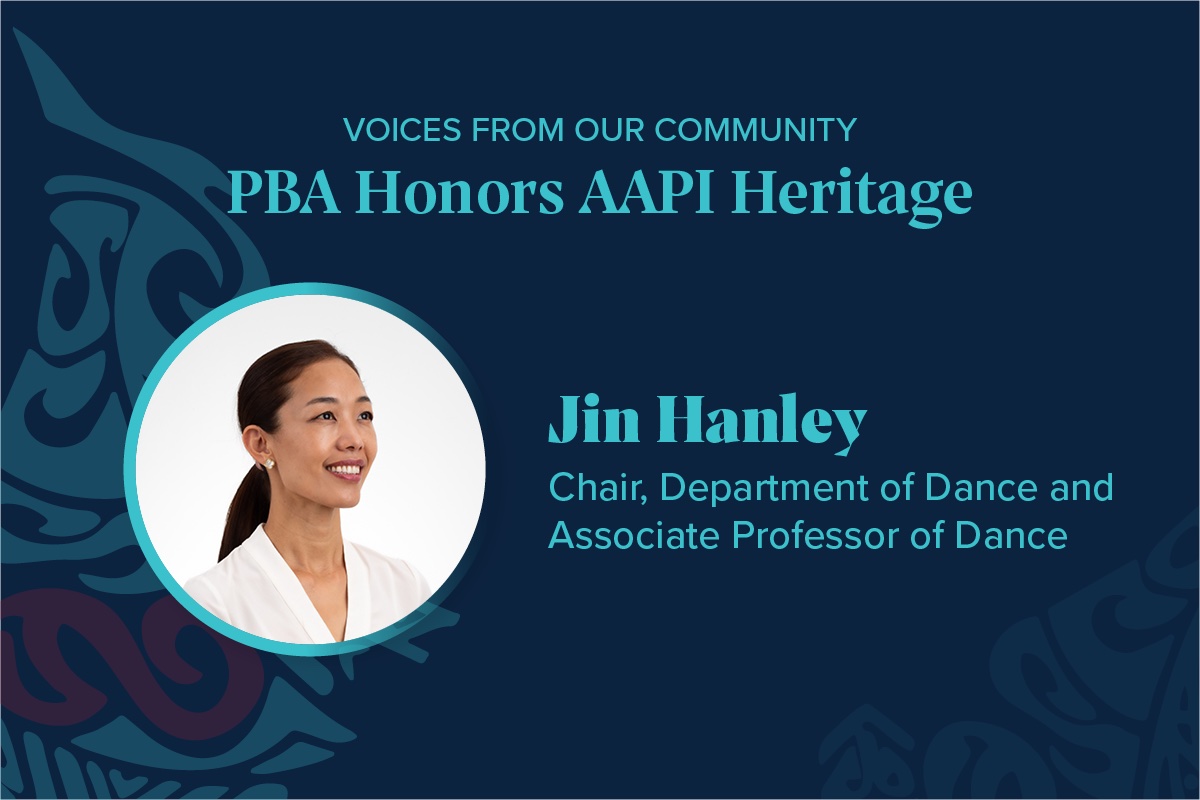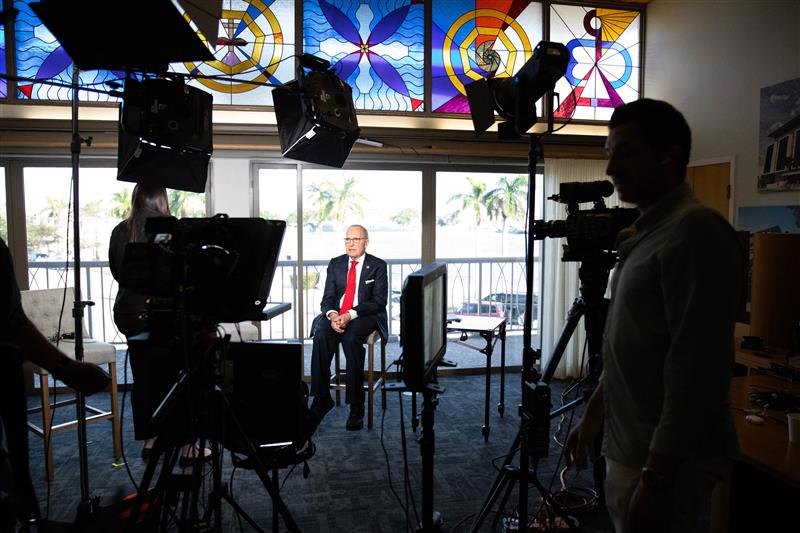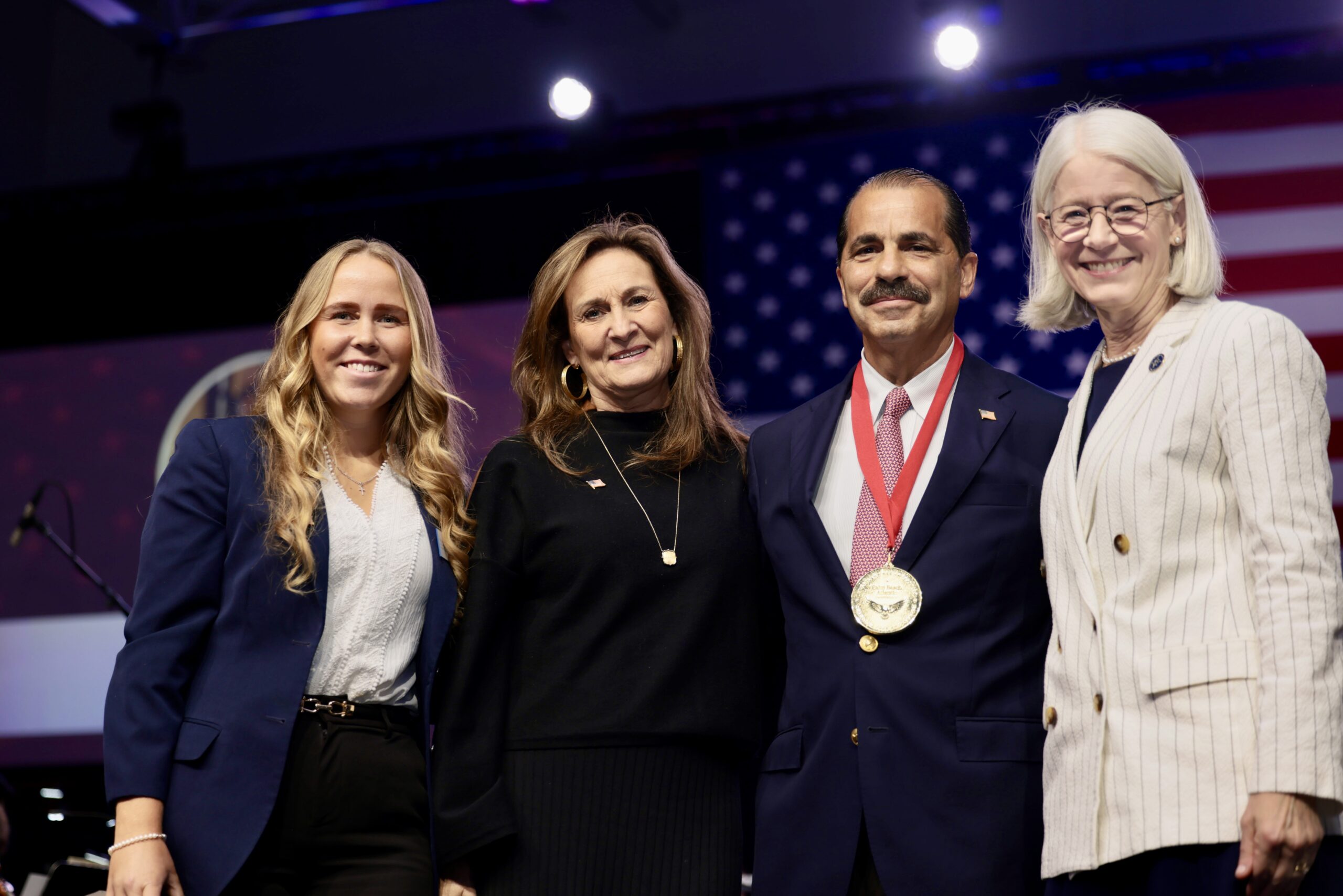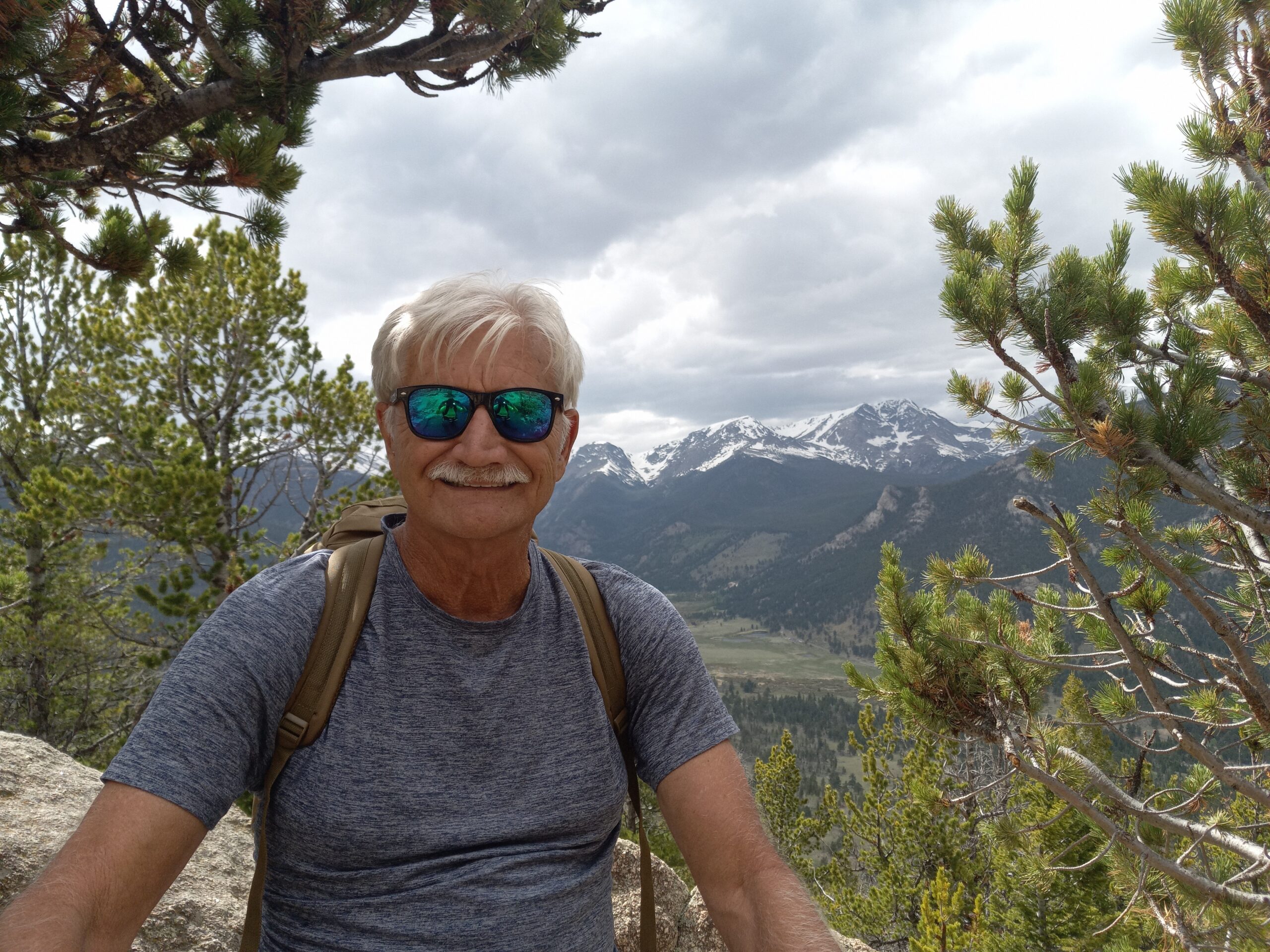Jin Hanley is associate professor and chair of PBA’s Department of Dance. A dedicated educator with over 25 years of experience in the U.S., Professor Hanley shares her story of growth, identity and cultural heritage as part of Asian American and Pacific Islander (AAPI) Heritage Month.
Originally from South Korea, Professor Jin Hanley moved to the U.S. at the age of 23, right after completing college. Since then, she has navigated through various cultural landscapes, from Spokane, Washington, to New York City, finally settling in South Florida. Reflecting on her early years in the U.S., she said there are differences in how you feel in every city.
Journey to America: Dreams and Realities
When Professor Hanley initially shares her motivation to move to the U.S. it seems both whimsical and hilarious, yet it highlights the allure and influence of American culture globally. As a young girl, she was captivated by Michael Jackson and humorously envisioned marrying him. This childhood fantasy led her to believe that to meet him, she needed to be a famous dancer and live in the U.S. It took her years to convince her parents to allow her to pursue any training in dance, and while her dream of marrying Jackson naturally faded as she matured, this early aspiration ultimately influenced her decision to relocate to the United States.
Her academic journey and her pursuit of a career in dance was plagued by several setbacks including injuries. Professor Hanley graduated from Kong-ju National University with a major in Ballet. Once in the U.S. she studied English as a second language at Gonzaga University in Spokane, Washington, after which she intended to join a dance program at Palm Beach Atlantic University (PBA) but encountered a hiccup with the school’s dance program schedule that didn’t align with her student visa requirements. This led her to follow the advice of her mentor, who encouraged her to pursue a graduate degree in dance at New York University (NYU), steering her path toward a master’s degree instead of another undergraduate program.
Her time at NYU was fraught with challenges, including financial struggles. However, through perseverance, community support and multiple jobs, she managed to fund her education and living expenses. A few years later, her journey eventually came full circle when she returned to Florida and was hired at PBA, where she climbed the ranks from a guest lecturer to the Chair of the Department of Dance, reflecting a divine orchestration that she believes guided her professional and personal development.
Cultural Identity and Empowerment
Fast forward and more than two decades later, Professor Hanley also has another role. She is the mother of a teenage son and daughter. She shares that while she does not usually have regrets, she wishes she had spent more time immersing her children into her cultural heritage.
“Connecting my children with their Korean heritage has been a profound challenge, especially since I was a single mother for a while before I remarried. The limited time I spent with them daily made it difficult to maintain those cultural ties, despite their grandparents’ presence. It’s a poignant reminder of the complexities of nurturing cultural roots in a diverse society.”
She is, however, making the effort to change her own approach to her identity and culture by having the confidence to share her heritage with others.
”Maybe starting seven or eight years ago, I decided that there was no need for me to fit in and I started to fully embrace who I am, and I want to teach others about my culture,” she explains.
She now actively incorporates her heritage into her teaching, sharing Korean cuisine and her language and traditions with her students. She also highlights how her colleagues and PBA leadership have embraced these values, crediting Dean of the College of the Arts Jason Lester and others who have allowed her to feel seen and acknowledged. They have also empowered her to step into new roles thanks to a supportive environment that values diverse perspectives.
Building Connectivity with the AAPI Community
Professor Hanley emphasizes the importance of building connections within the AAPI community to foster a sense of unity and support, but also encourages those around to not merely let this be another time of celebration. She believes meaningful change begins with an openness to getting to know each other’s backgrounds.
“While our heritage may vary—from Chinese, Japanese, to Korean and Thai—our shared experiences as Asians in this community hold powerful potential and I encourage every student and member of our community not to hold back due to fear of being seen as different. Let’s embrace our differences, initiate dialogues and build a united Asian community where everyone feels valued and heard. We can help foster an environment of acceptance and collaboration.”
As we celebrate AAPI Heritage Month, Professor Hanley underscores the significance of recognizing and honoring these narratives, not only to celebrate the achievements and contributions of the AAPI community, but also to educate others about the diverse cultures that enrich our society.
“It’s challenging, but it starts with educating ourselves and others. People often view Asians as a monolithic group, frequently defaulting to stereotypes that don’t reflect our diversity. We hail from various cultures across Asia, each distinct and rich in its own right,” she says. Adding, “I encourage you to take the first step. Approach us, learn about our diverse backgrounds, and recognize the unique contributions each culture brings. This acknowledgment is a powerful way to start appreciating the full tapestry of Asian identities.”



